- Home
- Russell Blake
The Day After Never - Perdition (Book 6) Page 7
The Day After Never - Perdition (Book 6) Read online
Page 7
Ray returned to his old bedroom and took a final look out over the town, peering into the gloom for signs of other patrols but not seeing any flashlights. Perhaps he was lucky, and now that the Chinese had taken control of the town, they were confident enough to limit their policing of the streets, especially in inclement weather. That was his hope, but he wasn’t going to depend on it and resolved to proceed cautiously.
He made it to the darkened herb shop in record time, jogging the entire way. When he arrived, he stood outside the blackened interior, searching for any indication that Mary or Rosemary were there. Seeing nothing, he tried the door and was surprised to find it opened easily – although why it was unexpected, given that they had evacuated, he couldn’t have articulated other than that it drove home the reality of the townspeople having left for good.
Once inside, he felt his way along the counter to the door in the rear of the shop and pushed it open. He tilted his head, concentrating, but heard nothing other than a few creaks as the building shifted in the wind. Ray stopped at the bottom of the stairs and whispered as loudly as he dared, “Mary? Rosemary? You there?”
Silence greeted him, and he made short work of searching the house, not expecting to find anyone. The atmosphere was one of emptiness, of a place that life had permanently departed, leaving nothing but ghosts of the past. At the threshold, he squinted into the darkness at the street, watching for movement. When he was sure that he was alone, he descended the steps and took off at a run, dodging from shadow to shadow to stay out of sight.
When he neared the hospital, the hair on his arms rose at the sight of the pitch-black building. He slowed as he approached from the rear and stopped short at a corpse lying in the middle of the street. Ray gasped at the sight of the man’s filthy bandages, and a frown creased his face – this was one of the wounded Rosemary had been tending to, and none of her charges were well enough to make their way from the hospital under their own power. He knelt to inspect the body and winced at the puncture wounds in the man’s bare chest where a blade had ended his life.
“Bastards,” Ray hissed, piecing together what had happened. If the Chinese had killed the wounded, there was little chance that Rosemary was still in the hospital, but he resolved to search it anyway to cross the place off his list.
Five minutes later he was done, and no closer to finding the women than he’d been at the bar. The enormity of his quest felt like a lead weight on his chest, and he was debating where to go next when he heard the faint echo of a man’s scream in the distance. He stiffened at the sound and cocked his head, thinking it might be a trick of the wind, and then heard it again – a wail coming from one of the lit areas several blocks away.
Ray picked his way along the street that led to the police station, his throat tight, guided by the sound of a man in agony. He paused across the street from the station, where torchlight flickered from the interior, the windows open to vent the smoke. Another howl confirmed the source of the emanation, and he swallowed hard as he studied the windows and entrance. He didn’t have long to wait to spot soldiers – four of them in slickers exited a few moments later and took off at a slow walk, the lead man wielding a hand-cranked flashlight he worked every dozen yards.
When the patrol was out of sight, Ray crept to the rear of the station, where the holding cells were located. He knew the layout from having met Deputy Alex there before when the sheriff was out on rounds, the deputy a reliable source of contraband Ray found a home for in the tent city. He hesitated at a series of high, barred windows no more than a foot wide and considered the openings; the glass was missing or broken, a reminder of the upheaval that had followed the collapse.
“Anybody in there?” he called in a hoarse whisper.
Hearing no response, he tiptoed toward the next window and cupped his hands around his mouth. “Anyone there?”
A male voice hissed from the gap. “Keep quiet or you’ll get us killed.”
Another scream from the station served as a reminder that Ray was playing with fire. He looked around and dared another try.
“Are Mary and Rosemary there?” he whispered.
Several long beats before the answer. “Other end of the block.”
A cry rang out from the far side of the building, and a flashlight beam flashed along the wall. Ray sprinted toward the trees without looking back, forcing himself to ignore the likelihood that a bullet would sever his spine at any moment. When the first shots rang out from behind him, he was little more than a dark blur moving at catlike speed, blending with the shadows like a phantom, and the Chinese bullet went wide as he raced to a line of derelict structures lining a small tributary street.
He dared a glance over his shoulder as he rounded the corner of the nearest building and saw six soldiers in hot pursuit, slowed by their slickers, flak jackets, and rifles. As long as he could maintain sufficient lead, he had no concern of being caught – he’d been slipping in and out of the town for so long it was like second nature, and the border was as porous to him as water to a fish. The thought drove him to greater speed, his legs pumping like pistons as he zigzagged away, leaving the soldiers with nothing but a glimpse of a figure who vanished like a poltergeist into the night.
Chapter 13
When dawn broke, Lucas shook Jeb awake. A coastal mist hung heavy in frigid air redolent of pine and damp earth. They’d camped far off the road in a clearing near a brook and had alternated three-hour watches, Hayden’s gang a worry on top of a Chinese sortie. Jeb came to with a start and reached for his rifle before realizing who had woken him. He blinked away sleep and grunted as he squinted up at Lucas.
“It’s already light out,” Jeb commented, his voice thick.
“Yep. Going to be slow going to find a crossing so we can avoid the bridge.”
They’d discussed strategy before making camp and had agreed that it would be best to skip a potentially hostile encounter with the guards watching the bridge to prevent any squatters or Chinese from following them. Lucas couldn’t be sure that they wouldn’t have been left with a two-way to warn the main column if hostiles showed up, and he had little doubt that Hayden’s ego and head would be smarting at the treatment he’d received at Lucas’s hand.
Jeb forced himself to his feet with a yawn and went to the brook to wash up before they hit the trail. Lucas chewed on some jerky while he waited, alert for any sounds of riders on the road. When the big man returned, Lucas adjusted his hat and watched Jeb pack his sleep roll and saddle his horse.
They mounted up and Lucas led the way, searching for a trail that might parallel the road. He had no plan defined for skirting the bridge, but Jeb had assured him that there would be shallow areas if they forged their way far enough along the river. They rode in silence, neither in a mood for socializing, their minds on the women and the situation they were likely riding into. Chen’s warning had been unmistakably threatening, and based on their sabotage of the town’s ammo depot, the Chinese hadn’t crossed the ocean to sightsee.
The sun rose in the sky, melting away the ground fog, and when they stopped to spell the horses, Jeb spoke to Lucas in a whisper.
“Shouldn’t be too much farther. When we hear the water, we should head to the right.”
“You want to lead this leg?”
“It’s been forever since I fished here, so don’t know as I’d be a whole lot of help.”
Lucas shrugged. “Either way’s fine with me.”
Jeb paused. “I hope they’re okay.”
Lucas took a minute before responding. “We’ll know for sure soon enough.”
“You think the Chinese have taken over the tent city, too?”
“No way of knowing what they have planned, Jeb.” Lucas paused. “We’ll have to play it by ear. Could be they kept moving to Portland and only wanted control over Astoria so it couldn’t pose a threat. Doesn’t have a lot of value other than access to the waterway, and that’s turning radioactive.”
“But they probably don’t know ab
out that.”
Lucas grunted and moved to where Tango was cropping grass. “Probably not.”
He swung up into the saddle and waited for Jeb to do the same. Twenty minutes later, Lucas slowed and tilted his head. “I hear water.”
“There should be some game trails nearby the animals use to reach the river.”
Lucas steered Tango toward the sound of rapids and, when they were near enough to see the surface shining in the sunlight, searched around the area for a track to follow. The brush was sparser on the other side of a pine tree to his right, and Lucas directed Tango to the gap in the bushes, where there was a clear trail that stretched along the bank.
The big stallion snorted as he brushed past thistle bushes, and Lucas leaned forward to pat his neck. “Easy, boy. You’re doing great,” he whispered, and then twisted his head at the water, straining to hear. Jeb nearly collided with him.
“What’s wrong?” Jeb blurted.
Lucas held up a hand in warning, silencing him. “Voices,” Lucas whispered, bringing his M4 to bear.
Jeb stayed quiet as he freed his rifle, slipping the strap from his shoulder. Lucas hesitated and then dropped from the saddle and handed Jeb the reins.
“Stay here,” he whispered, and then turned and disappeared into the underbrush, leaving Jeb to tend to the horses.
Lucas worked his way through the scrub until he could see the water, and froze at the clear sound of men’s voices drifting to him from upriver. Lucas peered along the bank and spotted three men bathing in the cold water, one of whom he recognized as a guard from Astoria. He looked past them to where their rifles lay on the bank and shook his head – if these dolts were the last line of defense to prevent the Chinese from following the caravan, they were already as good as dead.
Which wasn’t his problem, he realized; but the sight of the men so casually risking their lives out of sheer stupidity still angered him. That he and Ruby had devoted a month to bringing them the vaccine meant he had an investment in Astoria, and he felt like he’d squandered time he could have spent with Sierra and the kids.
The thought gave him pause. Aside from rescuing Ruby, he had the very real challenge of locating a radio so he could warn Elliot and the rest of Shangri-La of the danger they were facing. If the stakes could have been higher, he couldn’t see how – even now, hostile forces might be mobilizing to crush Pagoda Springs and murder his new family; and Lucas’s ability to communicate the danger to them in a timely manner could be their only chance of survival.
Lucas glanced at the bridge, where one more guard was lounging by the road. The smoke from a cooking fire was snaking into the air – another field craft mistake that would alert any hostiles of their presence. He shook his head and silently retraced his steps to where Jeb was waiting and gave him a whispered report.
“We’re probably a couple hundred yards from the bridge,” Lucas finished. “How far you reckon we have to follow the river to arrive at some shallows?”
Jeb frowned. “At least a quarter mile.”
“Then we best get to it.”
“You really think Hayden would put the word out about us? Seems awfully petty, with what they’re facing.”
“Can’t chance it.”
“You sure?”
“You feel like betting your wife’s and daughter’s lives on it? I’m not feeling that lucky.”
Jeb’s expression clouded. “Shame he wouldn’t let us go peacefully. Then again, he’s always been kind of bossy. All that power went to his head, I suppose.”
Lucas shrugged, his face indifferent, and took the reins from Jeb. “Not our problem anymore.” He mounted up and pointed at the track with his rifle. “You take point, since you know this area.”
Jeb nodded and coaxed his horse forward. The sound of the men receded behind them as they paralleled the river, and silence returned to the forest, the only sound the occasional mating call of a bird overhead or the rustle of a squirrel vaulting from branch to branch in the trees. Lucas checked his watch, his instinct to hurry tempered by his reluctant acknowledgement that they wouldn’t be able to do much before dark. For all they knew, the Chinese had butchered the squatters and laid waste to the encampment, although Lucas hoped that wasn’t the case. He figured they could use the cover that the tent city would provide, and he was hopeful that he would be able to glean some intelligence from the squatters, who’d had a day to monitor the invasion force and might be able to help him with their hours and movements.
He pushed the morose thoughts from his mind and concentrated on the job at hand. Jeb’s horse’s backside swayed in front of him, and the woods lay as quiet as they had likely been since the dawn of time, the forest perennial while the men who believed themselves to be its master had proved as fleeting as the summer wind.
Chapter 14
Ray awoke to yelling so loud from near The General’s bar that it roused him from an exhausted deep sleep. He checked the time and saw that he’d been resting for five hours, and groaned inside the tent that he kept pitched inside his lean-to in case it began pouring during the night. He blinked away disorienting grogginess and sat up, his .45-caliber Desert Eagle in hand, and listened to the confused jumble of voices, most alarmed, some angry.
He debated rolling over and trying to go back to sleep, but the clamor was too loud to ignore. Ray tried to make out words, but it was no good, and he reached for the tent’s zipper with a loud exhalation before pausing with his fingers inches from it, a slight tremor shaking his hand. He had escaped town without a problem after being chased for five minutes, his usual route as foolproof as ever, but the adrenaline surging through his system had kept him awake for two hours, his heart pounding long after he’d caught his wind, the discovery of Mary and Rosemary being held captive by the Chinese confirming his worst fears.
Ray’s feeling of powerlessness at this new cruel twist had gradually been replaced by a cold, calculating fury. Neither his cousin nor his aunt had done anything to deserve being imprisoned, and were two of the most compassionate people he knew. That couldn’t stand. However, he didn’t see a realistic way to help them – he was just one man against a literal army. The best he had come up with was to watch and see if the Chinese slipped up in some way or were regular in their rounds so he could somehow use their schedule against them.
The uncertainty about exactly how being his biggest problem.
He racked his brains for the names of any squatters who might be willing to help out in freeing the women, but most were on their last legs, malnourished, poor, in many cases defenseless other than whatever weapons they could fashion from branches. Even had some wanted to assist in breaking the women out, how they could manage it with the captives being housed in a jail and guarded by armed fighters eluded him.
Another round of shouting roused him from his thoughts, and he threw his blanket aside, unzipped the tent flap, and poked his head into the cold, hazy light of morning.
Ray spotted the contingent of Chinese soldiers within seconds, bayonets affixed to their rifles – the same sort of blade that would have made the punctures in the corpses Ray had stumbled upon. A wave of nausea threatened to choke him at the memory, but he swallowed the acrid bile and squinted to better make out what the armed men were up to.
The source of the shouting was obvious: a group of squatters was hurling invective at the soldiers as they manhandled several of the healthiest males into a group and cuffed them. Ray watched as the Chinese completed their task, and then one who appeared to be an officer, no rifle in evidence but a pistol at his hip, snapped instructions to his men and then turned and shouted a question at the crowd.
Ray couldn’t hear what he was demanding, and wasn’t so curious that he wanted to risk being taken prisoner. He didn’t know what the meaning of the exercise was, but after his night in town, he was sure it was nothing good. His hand reached slowly behind him into the tent and he felt the strap of his bugout bag by his blanket – an oversize nylon backpack he kept at the ready,
packed with most of his meager wealth as well as ammo, a first aid kit, a plastic rain poncho, a hand-cranked LED flashlight, and an assortment of odds and ends that would serve him well regardless of where he went.
His instinct was to bolt and never look back, but the mental image of Rosemary and Mary shivering in a cell stopped him. He couldn’t just leave them to their fate, which he had no doubt would be awful. That wasn’t who he was. Then again, he would do them no good if he was rounded up and herded into town for unknown purposes, so discretion won over outrage. He hoisted the backpack, his ropey arm muscles straining from the weight, and slipped the straps over his shoulders, eyes locked on the melee only rock-throwing distance from his lean-to.
Obviously agitated, the officer screamed something again, and Ray’s heart hammered in his chest at the sound – the panicked fury sounded ominous, especially from a soldier with a contingent of armed fighters nearby. Ray could easily imagine the Chinese opening up indiscriminately and cutting the protestors down, and he didn’t aim to see whether the officer would lose patience or not.
Ray eased from the lean-to, moving slowly so as not to attract attention, the dark clothing he’d slept in from his night’s exploration blending with the brush. He made it to the thicker scrub and paused at the tree line, craning his neck to see the soldiers.
The armed soldiers were retreating with a dozen captives in tow, the squatters in cuffs shuffling slowly as the Chinese covered the crowd with their rifles. Ray held his breath as they made their way back to the gate across the barbed wire and barren ground of the no-man’s land, and then they were through, and the two Chinese guards dragged the heavy iron slab closed behind them.
He waited several minutes, until he was sure that the foray into the camp was over, and then picked his way along the brush until he was back at his lean-to. A boy barely ten years old ran toward him with wide eyes, and Ray recognized Kelsey, one of the urchins he paid to keep him informed of any noteworthy events.

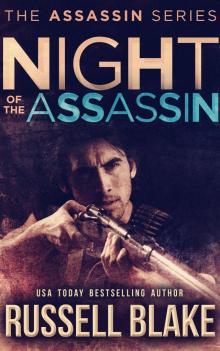 Night of the Assassin
Night of the Assassin Jet
Jet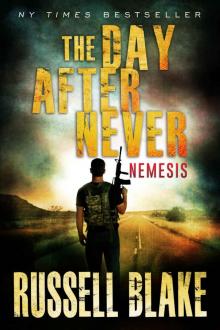 The Day After Never - Nemesis (Post-Apocalyptic Dystopian Thriller - Book 9)
The Day After Never - Nemesis (Post-Apocalyptic Dystopian Thriller - Book 9)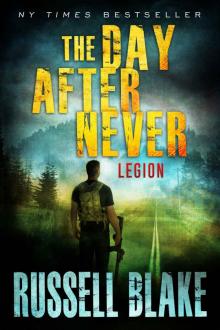 The Day After Never - Legion (Post-Apocalyptic Dystopian Thriller - Book 8)
The Day After Never - Legion (Post-Apocalyptic Dystopian Thriller - Book 8)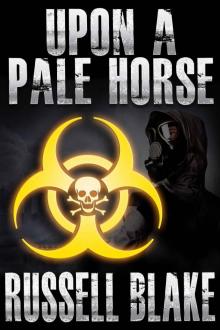 Upon A Pale Horse (Bio-Thriller)
Upon A Pale Horse (Bio-Thriller)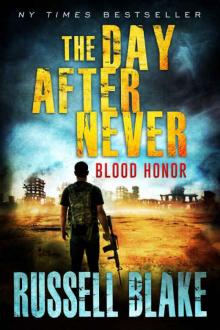 The Day After Never (Book 1): Blood Honor
The Day After Never (Book 1): Blood Honor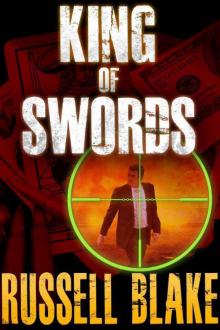 King of Swords a-1
King of Swords a-1 The Day After Never Bundle (First 4 novels)
The Day After Never Bundle (First 4 novels)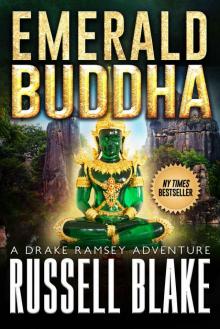 Emerald Buddha (Drake Ramsey Book 2)
Emerald Buddha (Drake Ramsey Book 2)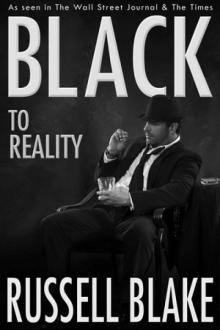 BLACK to Reality
BLACK to Reality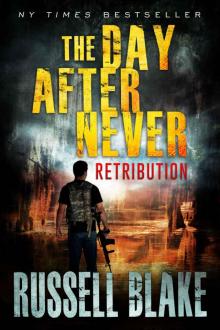 The Day After Never - Retribution (Post-Apocalyptic Dystopian Thriller - Book 4)
The Day After Never - Retribution (Post-Apocalyptic Dystopian Thriller - Book 4)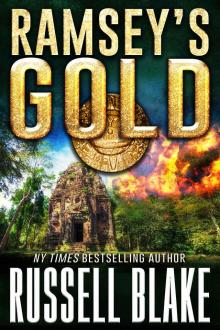 Ramsey's Gold (Drake Ramsey Book 1)
Ramsey's Gold (Drake Ramsey Book 1)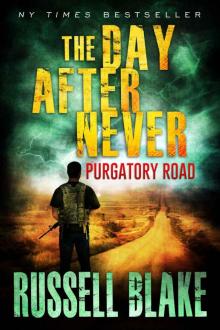 The Day After Never (Book 2): Purgatory Road
The Day After Never (Book 2): Purgatory Road JET - Ops Files
JET - Ops Files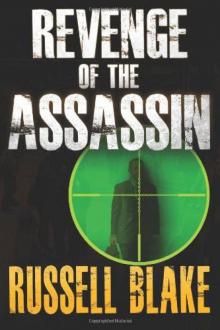 Revenge of the Assassin a-2
Revenge of the Assassin a-2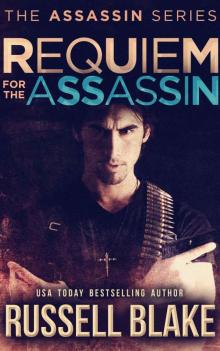 Requiem for the Assassin - 06
Requiem for the Assassin - 06 The Geronimo Breach
The Geronimo Breach Sahara
Sahara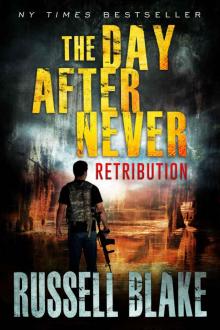 The Day After Never (Book 4): Retribution
The Day After Never (Book 4): Retribution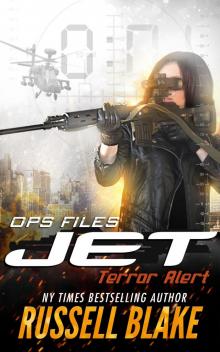 Ops Files II--Terror Alert
Ops Files II--Terror Alert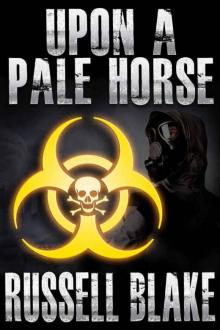 Upon A Pale Horse
Upon A Pale Horse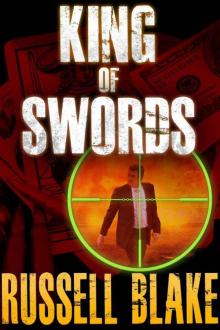 King of Swords (Assassin series #1)
King of Swords (Assassin series #1) A Girl Apart
A Girl Apart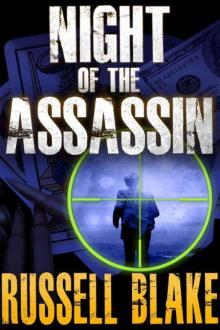 Night of the Assassin: Assassin Series Prequel
Night of the Assassin: Assassin Series Prequel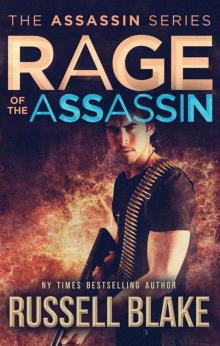 Rage Of The Assassin
Rage Of The Assassin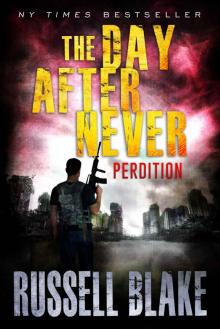 The Day After Never - Perdition (Book 6)
The Day After Never - Perdition (Book 6)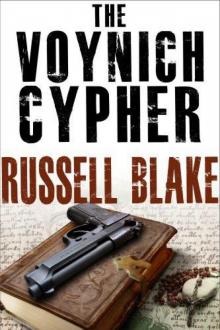 The Voynich Cypher
The Voynich Cypher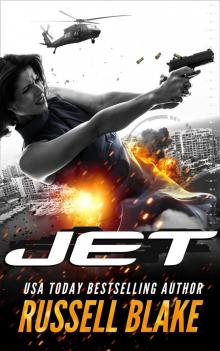 JET, no. 3
JET, no. 3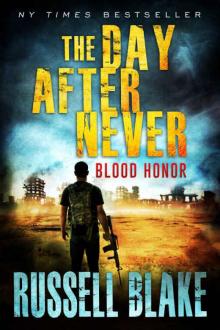 The Day After Never - Blood Honor (Post-Apocalyptic Dystopian Thriller)
The Day After Never - Blood Honor (Post-Apocalyptic Dystopian Thriller) 9 More Killer Thrillers
9 More Killer Thrillers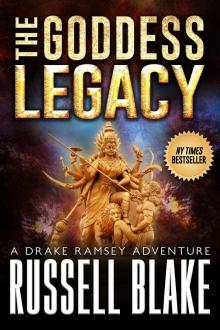 The Goddess Legacy
The Goddess Legacy Fatal Exchange
Fatal Exchange Fatal Exchange (Fatal Series Book 1)
Fatal Exchange (Fatal Series Book 1) JET - Forsaken
JET - Forsaken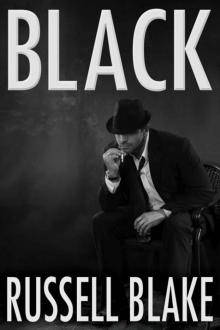 Black
Black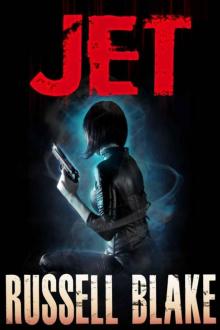 Jet j-1
Jet j-1 Betrayal j-2
Betrayal j-2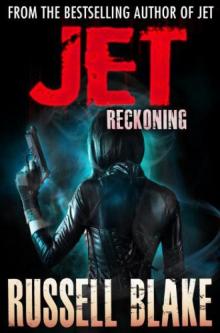 Jet 04: Reckoning
Jet 04: Reckoning Jet 03: Vengeance
Jet 03: Vengeance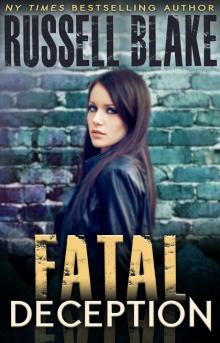 Fatal Deception
Fatal Deception A Girl Betrayed (A Leah Mason suspense thriller Book 2)
A Girl Betrayed (A Leah Mason suspense thriller Book 2)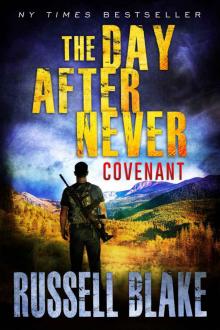 The Day After Never - Covenant (Post-Apocalyptic Dystopian Thriller - Book 3)
The Day After Never - Covenant (Post-Apocalyptic Dystopian Thriller - Book 3) JET II - Betrayal (JET #2)
JET II - Betrayal (JET #2)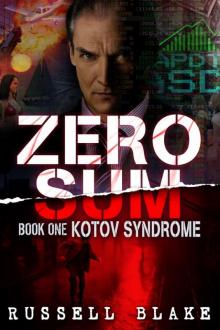 Zero Sum, Book One, Kotov Syndrome
Zero Sum, Book One, Kotov Syndrome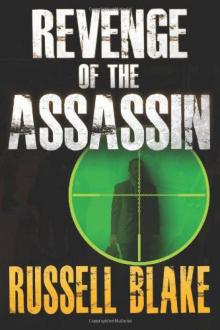 Revenge of the Assassin
Revenge of the Assassin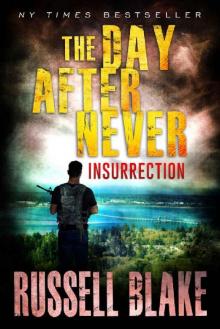 The Day After Never - Insurrection (Book 5)
The Day After Never - Insurrection (Book 5)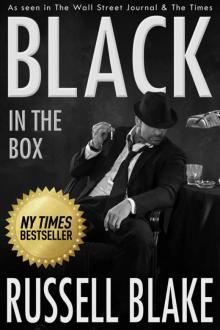 BLACK in the Box
BLACK in the Box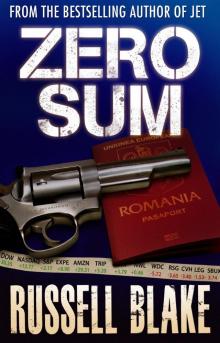 Zero Sum
Zero Sum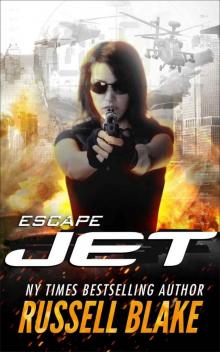 JET - Escape: (Volume 9)
JET - Escape: (Volume 9) The Manuscript
The Manuscript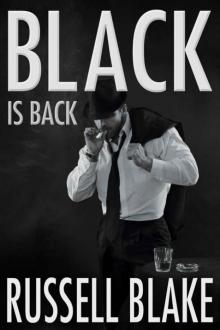 BLACK Is Back
BLACK Is Back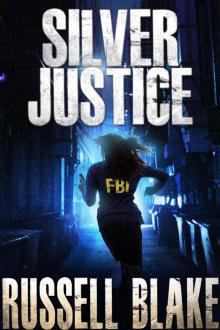 Silver Justice
Silver Justice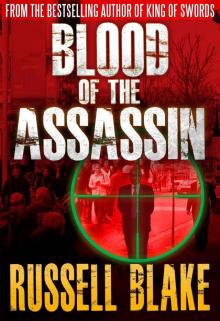 Blood of the Assassin
Blood of the Assassin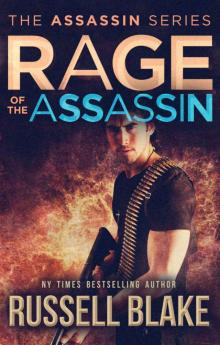 Rage of the Assassin: (Assassin Series #6)
Rage of the Assassin: (Assassin Series #6)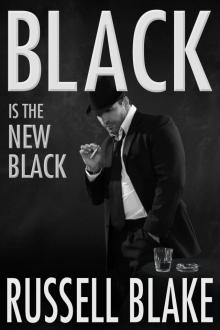 BLACK Is the New Black
BLACK Is the New Black